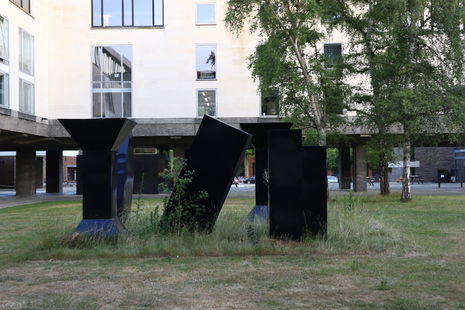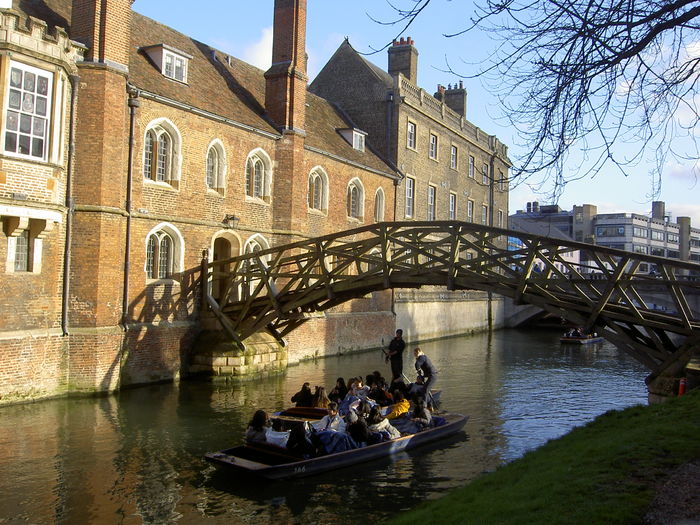My problem with the year abroad
Abril Duarte González argues the year abroad exposes Cambridge’s double standards – caught between cultural capital and consequence

During an end-of-term meeting, my director of studies asked where in Latin America I was from. When I answered ‘Colombia,’ they suggested I advise a course mate considering it for their year abroad. In the context of drug wars, political instability and armed groups, the remark implied that violence defined Colombia – and that I was somehow qualified to sign it off as a destination.
For most MMLers, the year abroad is treated as a rite of passage. What begins as a language exchange and cultural immersion becomes a way to gain cultural capital: a line on a CV, a veneer of cosmopolitanism, a break from Cambridge’s cloistered intensity. With 69 UK institutions offering years abroad or years in industry, many argue Cambridge should expand opportunities beyond just MML. The demand is clear.
But the way cultural difference circulates within Cambridge is uneven. For international students from underrepresented countries like my own, cultural identity is less a badge to be collected on a year abroad than a burden to be explained. I’ve been asked whether English is really my second language, or invited to recount stories of violence in Colombia as if it were pub chat. Meanwhile, my peers immerse themselves abroad for a year, gather experiences, and return home with little consequence. Maybe I’m just bitter but it seems like Cambridge loves my culture – just not on me. This is what I call exoticism without consequence.
“A line on a CV, a veneer of cosmopolitanism, a break from Cambridge’s cloistered intensity”
The pattern is hardly unique to Cambridge. Modern tourism itself is built on colonial logic: Europeans escaping into dream worlds of consumption, divorced from the realities of colonised peoples. Industrialisation expanded this habit, shaping racial hierarchies of who could travel, who served, and who was put on display. By the 1980s, far-off destinations like Colombia had become middle-class status symbols, packaged with Western-style hotels and food. Getting to know ‘the Other’ was carefully managed – enough difference to excite but not to unsettle.
Otherness, in this way, becomes commodified. Tourists – and students on their years abroad – seek ‘authentic’ experiences, often described as traditional, simple or pure. But these words usually mask double standards. Foreigners can dip into a way of life shaped by poverty and limited opportunity, before returning to comfort. For locals, there is no such reprieve.
This critique is not an argument against travel. Travel has always been part of the human story; societies have always sought contact with others. And it can still be transformative. I know this personally: I take pride in having visited 37 countries, especially as someone from a small Colombian city where many people have never even been to the capital. Travel has taught me more about myself than about the places I’ve visited. A year abroad is the same – a radical break in routine, in comfort, in the vision of normality.
“Race and class quietly shape who is encouraged to explore – and who is left behind”
But access to these experiences is not equal. The participation gap at predominantly white institutions reflects these entrenched barriers. According to the Institute of International Education, Black students make up only 5.5% of study-abroad participants globally. Studies from Georgia State University suggest that white students from higher socioeconomic backgrounds are more likely to have families who value and encourage such opportunities. At Cambridge, the 2024 MML cohort is just 17% non-white, a figure mirrored across most humanities and social science subjects. Race and class quietly shape who is encouraged to explore, and who is left behind. So the problem is not the desire to travel, but the double standards that govern it. Why is cultural identity an asset for some but a disadvantage for others? Why can my peers wear Colombia as an ‘experience,’ while I must wear it as an explanation?
When asked if I would recommend Colombia for a year abroad, I said yes. But the lived complexities of race, class and inequality that my course mate will likely brush against for a year are our realities.
The year abroad, like tourism more broadly, too often consume, market, and celebrate cultures – so long as the messiness of history and politics stays hidden. It’s worth remembering that while your year abroad enriches you, your presence is not necessarily enriching for the people or places you visit. Maybe you need them, but they don’t need you.
 News / Colleges charge different rents for the same Castle Street accommodation2 March 2026
News / Colleges charge different rents for the same Castle Street accommodation2 March 2026 News / News in Brief: waterworks, wine woes, and workplace wins 1 March 2026
News / News in Brief: waterworks, wine woes, and workplace wins 1 March 2026 News / Climate activists protest for ‘ethical careers policy’1 March 2026
News / Climate activists protest for ‘ethical careers policy’1 March 2026 News / Private school teacher who lied about Cambridge degree barred from teaching27 February 2026
News / Private school teacher who lied about Cambridge degree barred from teaching27 February 2026 News / Angela Merkel among Cambridge honorary degree nominees27 February 2026
News / Angela Merkel among Cambridge honorary degree nominees27 February 2026









